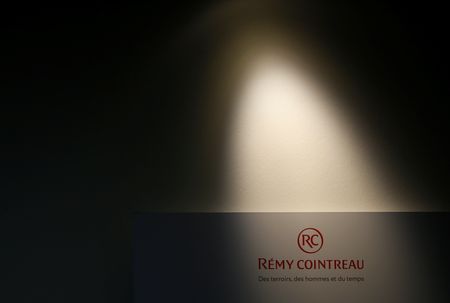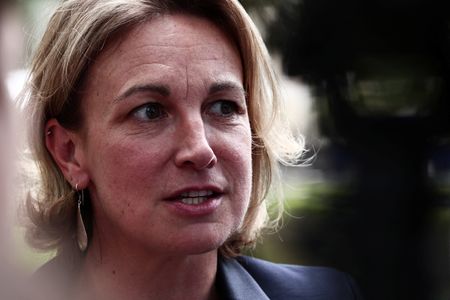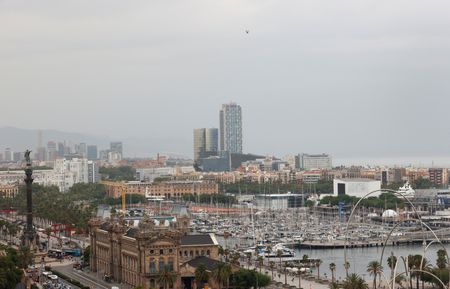By Dominique Vidalon and Alessandro Parodi
(Reuters) -French spirits maker Remy Cointreau raised its annual profit forecast on Friday, joining larger rival Pernod Ricard in flagging a lower than feared blow from U.S. tariffs after a 15% rate was agreed on EU imports last month.
Sales have slumped in Remy Cointreau’s key U.S. and Chinese markets in recent years, forcing the company into multiple guidance downgrades and to scrap medium-term sales targets. It said in June, though, that the worst was over.
Remy said on Friday it now expects a net 20-million-euro ($23.4 million) hit from U.S. tariffs on its current operating profit for the 2025-2026 fiscal year, down from 35 million euros estimated previously.
An estimated hit from Chinese tariffs of 10 million euros was unchanged and Remy now expects an overall blow from global tariffs of 30 million euros, down from 45 million estimated previously.
As a result, the maker of Remy Martin cognac now expects a mid-single-digit percentage organic decline in 2025-2026 current operating profit, an improvement from the mid-to high-single-digit percentage drop previously anticipated.
In 2024-25, Remy reported a current operating profit of 217 million euros, down 30.5% on an organic basis amid weak U.S. and Chinese sales.
The new forecast “represents a second upgrade from the company as tariff uncertainty has eased”, brokerage Jefferies said in a note, expecting more optimism once the EU-U.S. trade deal is finalised.
Jefferies said the lower tariff hit would allow Remy to invest in growth initiatives to regain market in the U.S. and China.
At 0820 GMT, Remy shares were down 1.6% at 53.8 euros, after rising strongly on Thursday.
The company makes around 70% of its sales from cognac, mostly in the U.S. and China, leaving it more exposed to tariffs and economic downturns than more diversified rivals.
On Thursday, Pernod Ricard revised its forecast for the annualised impact of U.S. and Chinese tariffs to 80 million euros from 200 million previously.
($1 = 0.8542 euros)
(Reporting by Dominique Vidalon in Paris and Alessandro Parodi in Gdansk. Editing by Tomasz Janowski and Mark Potter)







